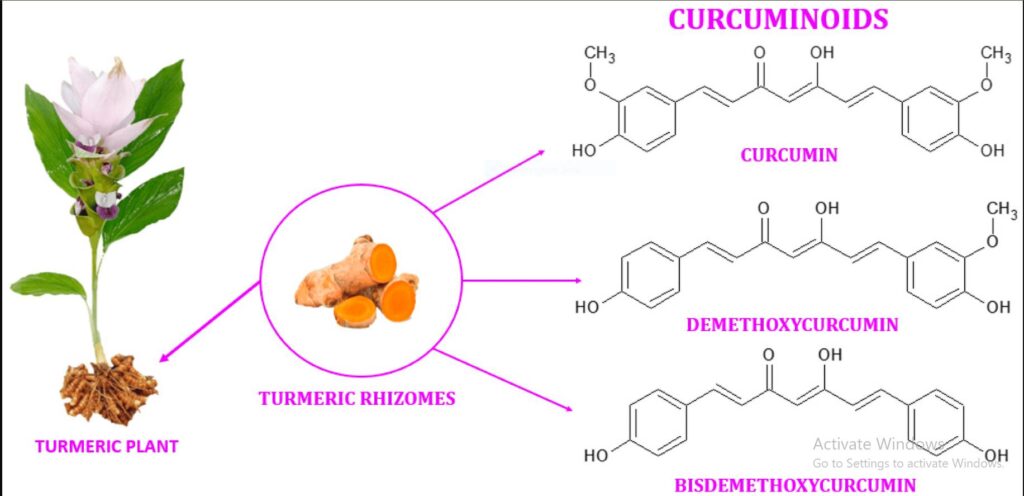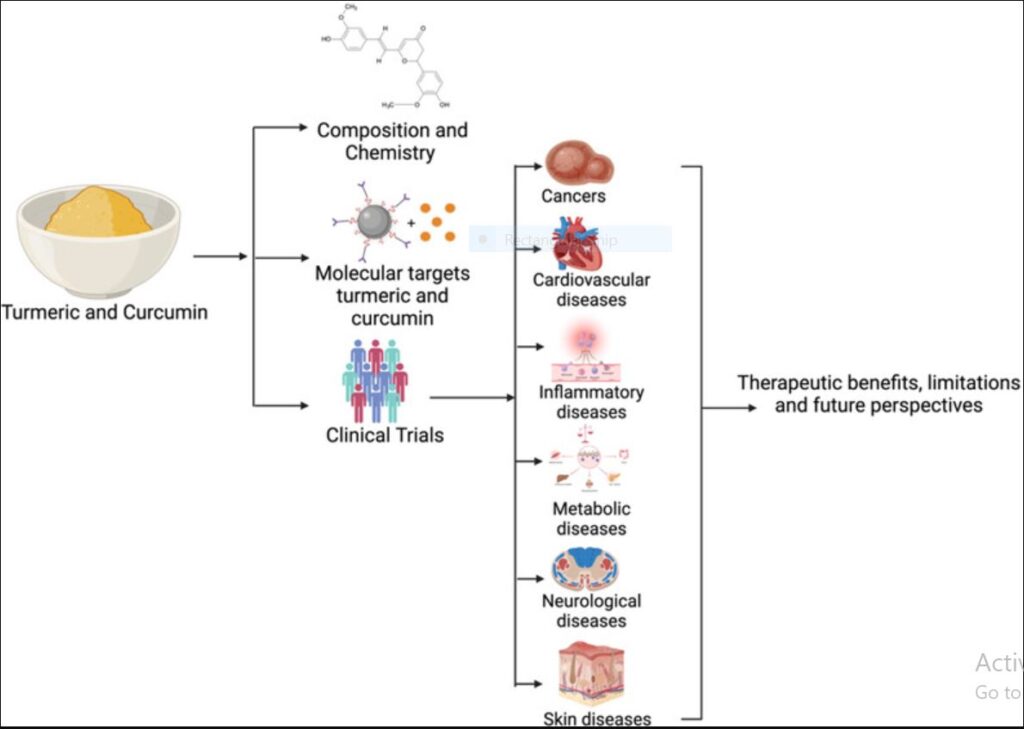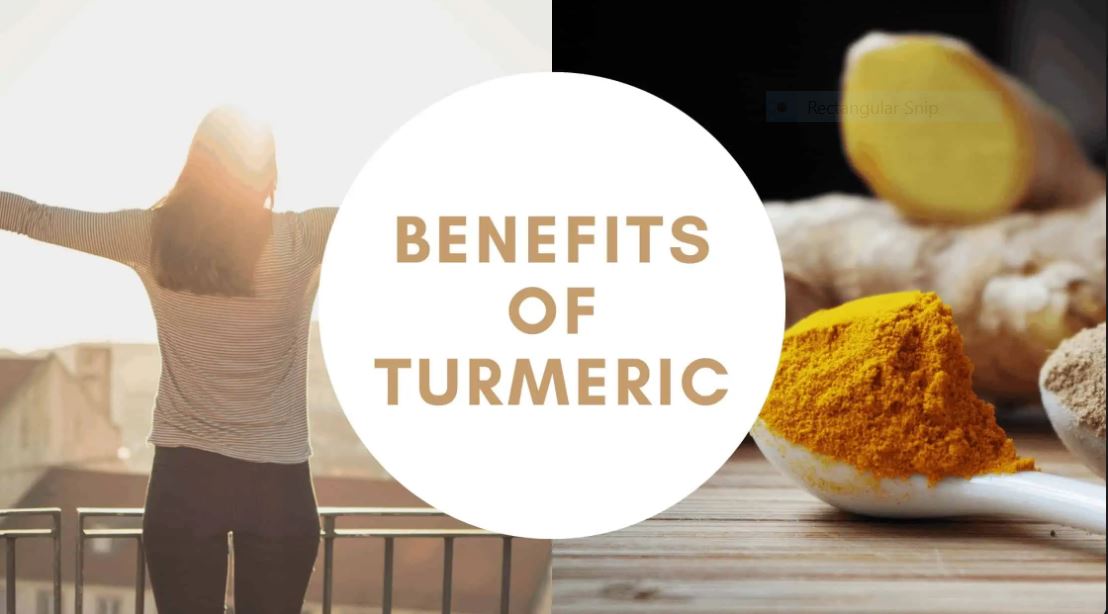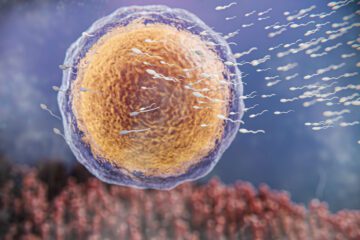The Truth About Turmeric and Sexual Health: Separating Fact from Fiction
Introduction
Nowadays turmeric is a topic of every tongue. Turmeric has gained popularity due to its health benefits. But still, we are interested in uncovering its benefits for sexual health. Is turmeric really helpful sexually? This is the question of today’s post and at the end of this post, you will be educated enough to know about turmeric’s benefits on sexual health.
Not only this but many more from reducing inflammation to acting as a potent antioxidant, turmeric’s effects have been widely explored.
Picture this — a spice so powerful it has captivated cultures for centuries. Imagine it might hold the key to unclosing your sexual vitality. Could turmeric be the secret weapon your intimate health has been seeking?
Amid conflicting information about turmeric’s influence on sexual health, our goal is to sift through the noise and distinguish fact from fiction.
Turmeric
Turmeric, scientifically known as Curcuma longa. Turmeric boasts a rich history in traditional medicine across Southeast Asia. Beyond its culinary uses, this golden spice has been revered for its anti-inflammatory and antioxidant properties.
Uses of Turmeric in Traditional Medicine:
For centuries, turmeric has been a staple in traditional medicine, believed to offer benefits ranging from wound healing to digestive support.
Bioavailable forms of Turmeric:
For optimal absorption, consider forms like liposomal curcumin when incorporating turmeric into your routine.
Deepening the Link Between Turmeric and Sexual Health
While promising, the potential effects of turmeric on sexual health deserve a closer look.
Sexual health issues and the role of Turmeric:
Erectile dysfunction and diminished libido are common concerns linked to chronic inflammation and oxidative stress. Let’s explore how turmeric may offer relief.
Mechanisms and Potential Benefits of Turmeric for Sexual Health:
Turmeric, a golden-hued spice, has piqued interest not only in the culinary world but also in the empire of health and wellness. Specifically, its active compound, curcumin, has been under the spotlight for its potential benefits in sexual health.


1- Anti-inflammatory and
2- Nitric Oxide Boost
3- Antioxidant Protection and
4- Sperm Quality
5- Hormonal Balance
6- Mood-Boosting and
7- Neurotransmitter Support
Curcumin, the powerhouse within turmeric, has been found to stimulate the expression of nitric oxide synthase (NOS) genes.
Increased Nitric Oxide Production:
This stimulation promotes the synthesis of nitric oxide, a crucial molecule for vasodilation – the relaxation of blood vessels.
Improved blood flow to genital tissues during sexual arousal may be a key benefit for both men and women.
Reducing Inflammatory Cytokines:
Chronic inflammation poses a threat to sexual response by damaging tissues and impairing nerve function.
Curcumin’s anti-inflammatory properties may combat inflammation in the reproductive system, potentially enhancing sexual function.
Improved Endothelial Function:
Endothelial dysfunction, a contributor to sexual dysfunction, involves impairment of the inner lining of blood vessels.
Curcumin may counteract this by improving endothelial function, benefiting overall blood flow and sexual health.
Combating Oxidative Stress:


Oxidative stress, a culprit in cell damage, can adversely affect sexual health. Curcumin’s antioxidant prowess may help combat oxidative stress, safeguarding reproductive cells and promoting healthy sexual function.
Improved Sperm Quality:
For men concerned about fertility, curcumin may offer a solution. By reducing oxidative stress and protecting sperm DNA, curcumin could potentially enhance sperm quality.
Check Out: Sperm cramps
Modulating Estrogen and Testosterone Levels:
Curcumin’s influence extends to hormonal balance. In women, it may help regulate estrogen levels, offering potential benefits for conditions like polycystic ovary syndrome (PCOS).
For men, preliminary studies suggest a potential increase in testosterone concentrations, potentially addressing issues such as low libido. However, further research is essential for confirmation.
Improving Mood and Reducing Stress:
Curcumin’s dual role as an antidepressant and mood enhancer may indirectly benefit sexual function. Addressing stress and improving mood can positively impact libido and sexual performance.
Supporting Neurotransmitter Function:
In the intricate dance of sexual pleasure and arousal, curcumin may play a role by supporting neurotransmitter function. Studies indicate its ability to boost serotonin, dopamine, and noradrenaline levels—key players in sexual motivation.
Important Considerations
While these potential mechanisms paint an intriguing picture of turmeric’s impact on sexual health, it’s crucial to note that most research is still in its early stages. The majority of studies rely on animal or in vitro models, necessitating more extensive human research for definitive conclusions.
Downsides of Turmeric in Sexual Health Issues
- Interactions with Medications:
- Turmeric may interact negatively with certain medications, such as those affecting blood clotting, blood sugar regulation, and liver function. This interaction might affect sexual performance if related drugs are being taken concurrently.
- Allergic Reactions:
- Although rare, some individuals may develop allergic reactions to turmeric, which could manifest as skin irritations, respiratory symptoms, or digestive problems. These adverse reactions could potentially disrupt sexual activity.
- Gastrointestinal Side Effects:
- Consuming large amounts of turmeric may cause stomach upset, nausea, gas, bloating, diarrhea, or heartburn. Gastrointestinal discomfort could lead to decreased appetite, fatigue, and mood changes, all of which could negatively impact sexual desire and performance.
- Liver Toxicity:
- Excessive consumption of turmeric may increase the risk of liver toxicity, especially when combined with other herbs or supplements containing hepatotoxic compounds. Liver impairment could result in low testosterone levels, leading to diminished libido and sexual function.
- Impaired Blood Sugar Regulation:
- Turmeric may lower blood glucose levels, which could pose risks for people with diabetes who take medication to manage their condition. Uncontrolled hypoglycemia could contribute to erectile dysfunction and other sexual health concerns.
- Unwanted Weight Loss:
- Some weight loss supplements contain turmeric, but excessive use of these products could lead to unhealthy weight loss, causing muscle weakness, fatigue, and reduced libido.
- Endocrine Disruption:
- There is concern about the endocrine-disrupting effects of turmeric, specifically regarding its ability to interfere with estrogen metabolism. Altered hormonal balance could adversely affect sexual health.
- Exacerbated Menstrual Symptoms:
- For women experiencing menopausal symptoms, turmeric may exacerbate hot flashes and night sweats, making sexual intimacy less comfortable.
Scientific Evidence and Studies
Exploring the scientific backing for turmeric’s sexual health claims.
Studies, such as one published in the “Journal of Sexual Medicine,” revealed that curcumin supplementation improved erectile function in diabetic rats by enhancing penile blood flow and reducing oxidative stress.
Limitations Of Animal Studies:
Studying the effects of turmeric on sexual activity primarily relies on animal models, which present several limitations:
- Species differences
- Variability among strains
- Limited relevance to complex human pathophysiology
- Poor prediction of human responses
- Insufficient consideration of gender differences
Despite these limitations, animal studies remain valuable tools for exploring the potential mechanisms of action and initial safety assessment of substances like turmeric. However, additional human studies are necessary to establish definitive conclusions about turmeric’s effects on sexual health.
Other Dietary Sources Of Curcumin :
Don’t limit yourself to turmeric—explore other curcumin-rich foods like ginger and holy basil. Ginger and Holy Basil are also rich in curcumin which is available easily and can be used alternatively with turmeric. Here I mentioned other foods as well that are quite rich in curcumin:
- Ginger
- Holy basil (Tulsi)
- Black pepper
- Mango
- Citrus fruits
It’s important to note that while these foods all contain curcumin, the amount varies greatly. Turmeric is the best source, followed by ginger and holy basil. However, even small amounts of curcumin can be beneficial, so don’t be afraid to incorporate these foods into your diet!
Supplement dosage recommendations:
Consider a high-quality turmeric supplement with standardized curcumin content. Consult a healthcare professional for personalized advice.
Choosing the right high-quality turmeric supplement can be tricky, as there are many factors to consider. Here are some key points to remember:
Ingredients:
- Standardized curcumin content: Look for supplements that specify the amount of curcumin per serving, and ideally that it’s standardized to a certain percentage (e.g., 95% curcuminoids). This ensures you’re getting a consistent and potent dose.
- Bioavailability: Choose forms of curcumin with enhanced bioavailability, meaning your body can better absorb it. Options include liposomal curcumin, meriva curcumin, or curcumin with black pepper (piperine).
- Minimal additives: Avoid supplements with unnecessary fillers, binders, artificial flavors, or colors.
Brand reputation:
- Look for reputable brands with a good track record of quality and transparency. Check for third-party certifications like USP, NSF, or GMP.
- Read reviews from other customers to get their experience with the product.
Cost:
- High-quality turmeric supplements can vary in price, but generally, you’ll pay more for products with higher curcumin content, better bioavailability, and fewer additives.
Here are some highly-rated turmeric supplements that meet these criteria:
- Thorne Research Meriva SF: This supplement uses meriva curcumin, a clinically studied form with enhanced absorption. It’s also free of gluten, soy, and other common allergens. Opens in a new windowwww.nahdionline.com Thorne Research Meriva SF turmeric supplement
- Life Extension Super Bio-Curcumin: This option delivers a high dose of bioavailable curcumin with good user reviews.Opens in a new windowwww.amazon.com Life Extension Super BioCurcumin turmeric supplement
- Nature-Made Turmeric Extra Strength: This is a more affordable option that still offers standardized curcumin and good bioavailability thanks to the inclusion of black pepper extract. Opens in a new windowencarguelo.com.ve Nature Made Turmeric Extra Strength turmeric supplement
- Garden of Life Mykind Organics Extra Strength Turmeric: This organic supplement is a good choice for those who prefer natural ingredients. It uses turmeric extract with black pepper for better absorption.
Turmeric balance with lifestyle :
Balance your turmeric intake with
- Sufficient sleep,
- Stress management
- Mindfulness
- Yoga, and
- Avoiding smoking and
- Excessive alcohol.
Conclusion
In summary, turmeric, with its active compound curcumin, holds promise in the realm of sexual health. The identified mechanisms, from improved blood flow to hormonal balance and mood enhancement, offer a compelling narrative. Yet, the story is far from complete, and rigorous human studies are needed to unlock the full potential of turmeric in enhancing sexual well-being.




[…] چینی میں فلورائیڈ اور کلورائیڈز موجود ہیں جو دانتوں کی صحت میں مدد فراہم کرتے ہیں۔ یہ […]
[…] Turmeric […]
[…] 29 December 20233 March 2024 What is a sperm cramp? Sperm cramps refer to discomfort or a short & dull pain in the lower abdominal region, testicles, or penis head after ejaculation. It is an excruciating sensation, either in one or both testicles. The exact cause of post-ejaculatory pain is not fully understood. It is commonly used to describe discomforts that are thought to be related to sperm production, ejaculation, or intercourse. Some males experience the phenomenon of pain after orgasm. Plenty of teenagers are facing post-ejaculatory pain but are unaware of its causes and remedies. In this study, we aim to shed light on the physiological and psychological causes of sperm cramps. It includes examining the potential causes, implications, and broader context that pain after orgasm places within the landscape of male reproductive well-being. […]